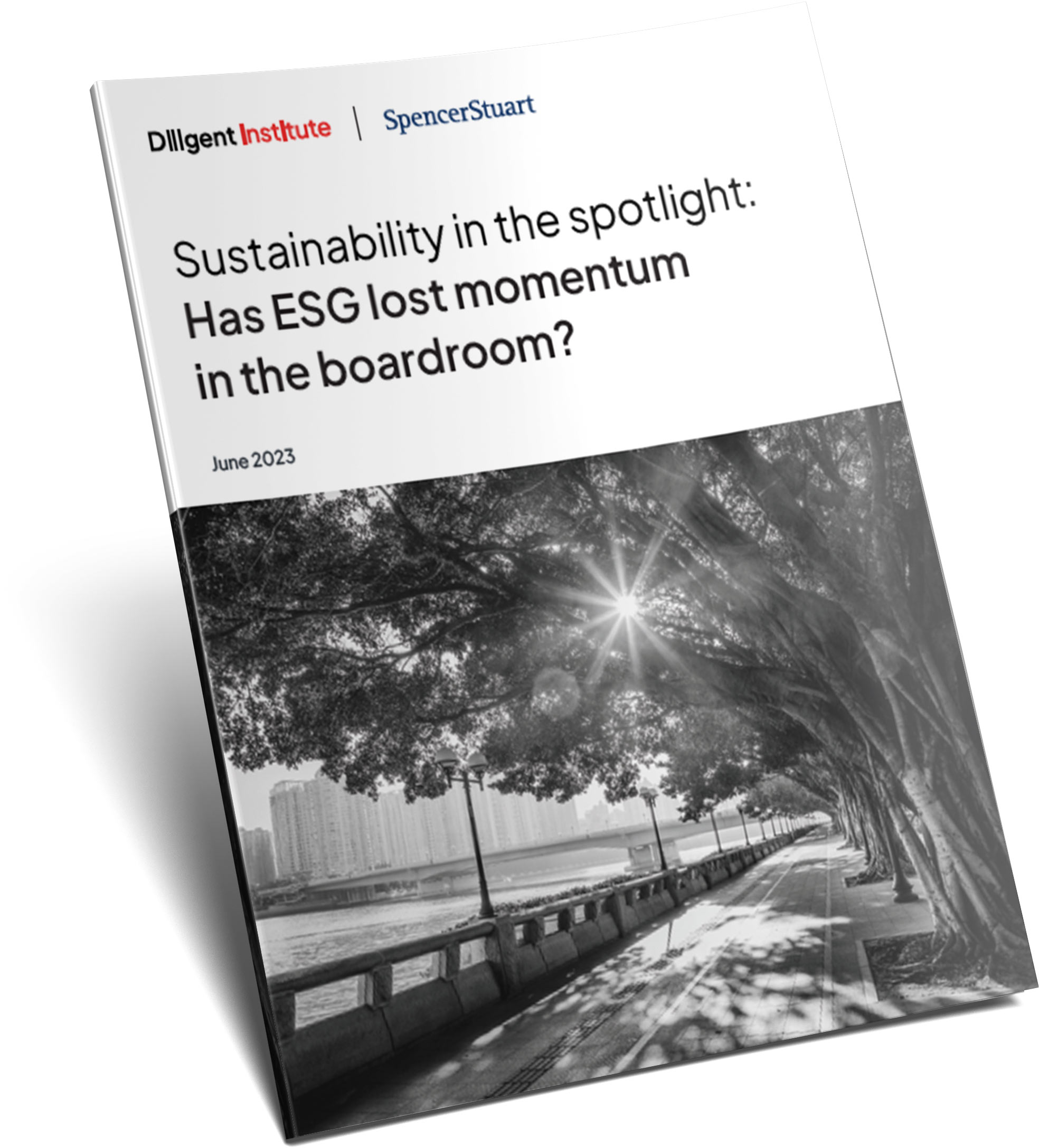 The past year has brought many watershed moments in the world of ESG. In Europe, there has been added pressure on companies to tighten and enhance their approach to sustainability more broadly, without relying on the blanket term “ESG.” Meanwhile, in the United States, a high-profile and divisive backlash has made some companies and leaders fearful to even use the term ESG. This begs the question, is ESG still a priority, has it lost momentum in the boardroom or does it just depend on where you are in the world?
The past year has brought many watershed moments in the world of ESG. In Europe, there has been added pressure on companies to tighten and enhance their approach to sustainability more broadly, without relying on the blanket term “ESG.” Meanwhile, in the United States, a high-profile and divisive backlash has made some companies and leaders fearful to even use the term ESG. This begs the question, is ESG still a priority, has it lost momentum in the boardroom or does it just depend on where you are in the world?
The inaugural 2022 ESG survey by Spencer Stuart and Diligent Institute sought to learn more about how boards were structuring ESG oversight and how companies were pivoting to address these issues. In our second edition for 2023, we seek to understand more about how rapidly the financial and ESG climate has changed over the past year.
Our survey of 992 board members (up from 590 last year) sheds light on a number of key elements of boards’ ESG governance today:
Key Findings
56
%
of Europe-based companies view ESG issues in terms of opportunities vs. 30% of U.S.-based companies
34
%
of U.S.-based companies see ESG issues in terms of risks vs. 13% of Europe-based companies
45
%
of directors feel they need better insights around how their ESG goals link to overall company strategy
60
%
of directors say their board is taking extra care to ensure that their ESG strategy is adequately reflected in annual reports/filings
90
%
of companies have incorporated environmental goals or metrics into one or more areas of their businesses
89
%
of directors say that the full board at their company evaluates ESG-related goals and strategies at least once a year
30
%
of directors say their board has changed oversight structures around environmental or social issues in the last year
49
%
of directors said the full board oversees ESG